“The Streets raised us. Horses saved us.” – The Compton Cowboys x Tommy Hilfiger For SS21 ‘Moving Forward Together’ Campaign [@TommyHilfiger]
![“The Streets raised us. Horses saved us.” – The Compton Cowboys x Tommy Hilfiger For SS21 ‘Moving Forward Together’ Campaign [@TommyHilfiger]](https://guap.co/wp-content/uploads/2021/03/SP21_SPW_COMPTON-COWBOYS_LOOK2_01_300_39L-1-180x180.jpg)
The Compton Cowboys Are On The World’s Stage With Their Newest Collaboration with Tommy Hilfiger.
For those familiar with hip-hop music, when thinking about the city of Compton it is understandable to envision a world of crime, drugs, and gang violence. Movies like Straight Outta Compton, released in 2015 that depict the brutal gang life of Compton in the mid-1980s, make it a very dangerous world on the outside looking in. Due to this type of representation of Compton, it has seemed that there is only one experience of Compton presented to the world, which is one of crime and violence. However, in recent years, there seems to be something else that comes straight out of Compton.
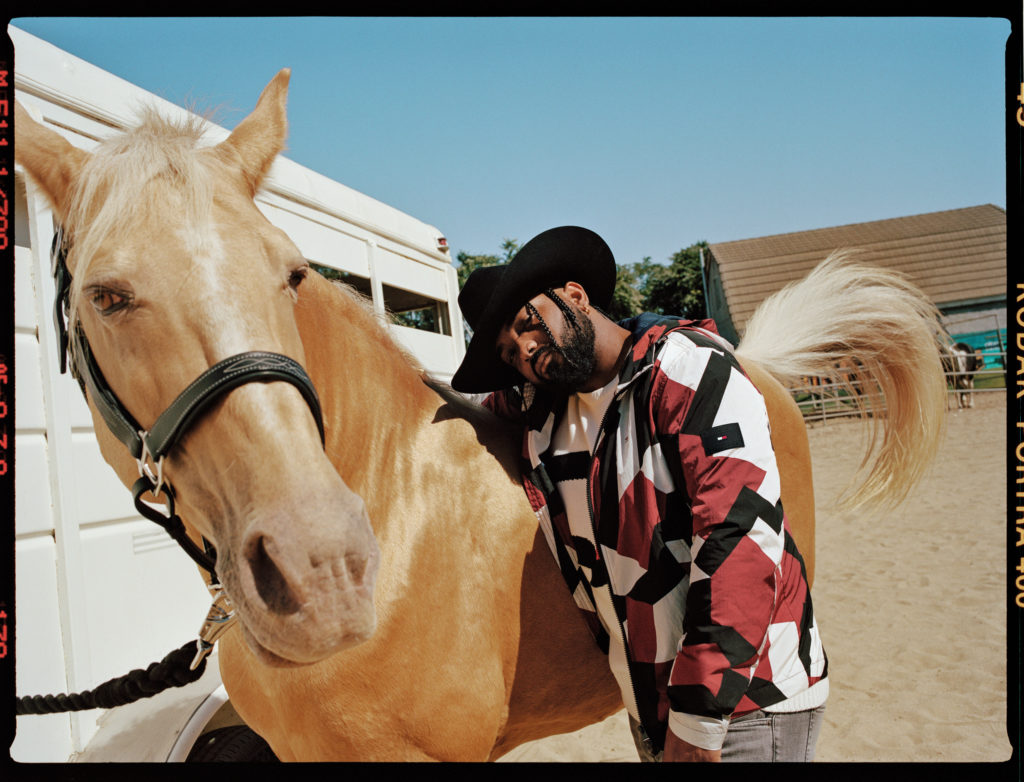
The Compton Cowboys are a collective who like their predecessors, ride horses through the streets of Compton and teach the generation that will follow, to ride horses and steer their energy away from the streets and instead, into a community that will encourage and uplift them. Spotted at Black Lives Matter protests and voting ballots, this collective is doing more than riding horses for recreation. Dubbed as local superheroes in Compton, The Compton Cowboys ride to reclaim a legacy that has been lost in history.
Born & raised in Richland Farms, Compton, leader of The Compton Cowboys and Executive Director of nonprofit youth equestrian organisation Compton Junior Equestrians; Randy “Savvy” Hooks is the nephew of Mayisha Akbar, the founder of Compton Junior Posse. Randy’s father is a first-generation college student who received an MBA from Harvard. Wanting to make a difference in his community, Randy’s dad moved the family to the “hood.” Crime, drugs, and gangs were rampant in Compton in the 1990s. Randy credits the horses for keeping himself, his brother, and many others off the streets. His Compton Cowboys crew attended rodeos, parades, camping trips, and more, living a full outback western lifestyle throughout adolescence.
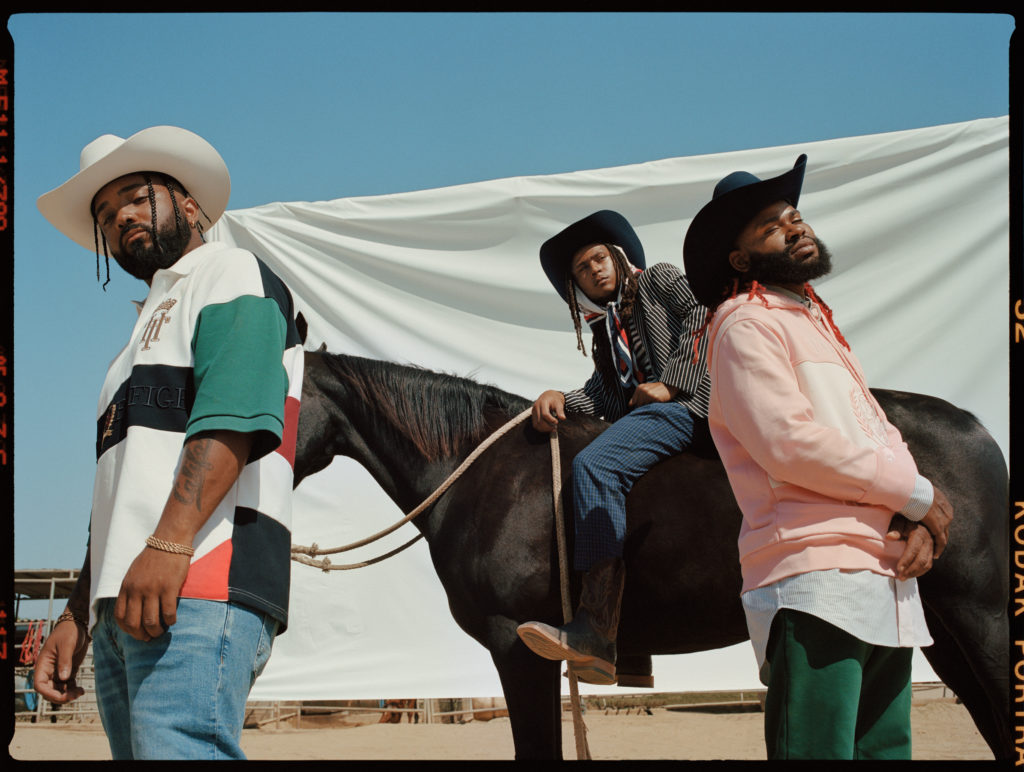
By being captured and documented, The Compton Cowboys are here to be celebrated and remembered for a long time to come. The very image of a Black Cowboy riding through the city feels like an act of defiance to the very white-washed single representation of Cowboys that we have seen documented in American history and presented in media. The Black Cowboy is a statement of freedom, rebellion, and courage. We got the opportunity to speak to The Compton Cowboys about their journey so far and the importance of the continuation of tradition and legacy in the black community.
The Compton Cowboys have been spotted at BLM protests and voting ballots. How important is politics to the collective?
We wholeheartedly believe in democracy. Participating in the process of democracy is what’s important to the group. We know that to affect the change we must be civically engaged, there’s no way around that. Civic engagement provides us the opportunity to participate in shaping the politics that effectively set the course for our livelihood. That is the genius of true democracy. Regardless of where we stand politically on any particular matter, which varies amongst our group members, being proactive about getting our voices heard is the key. That’s what we support and promote.
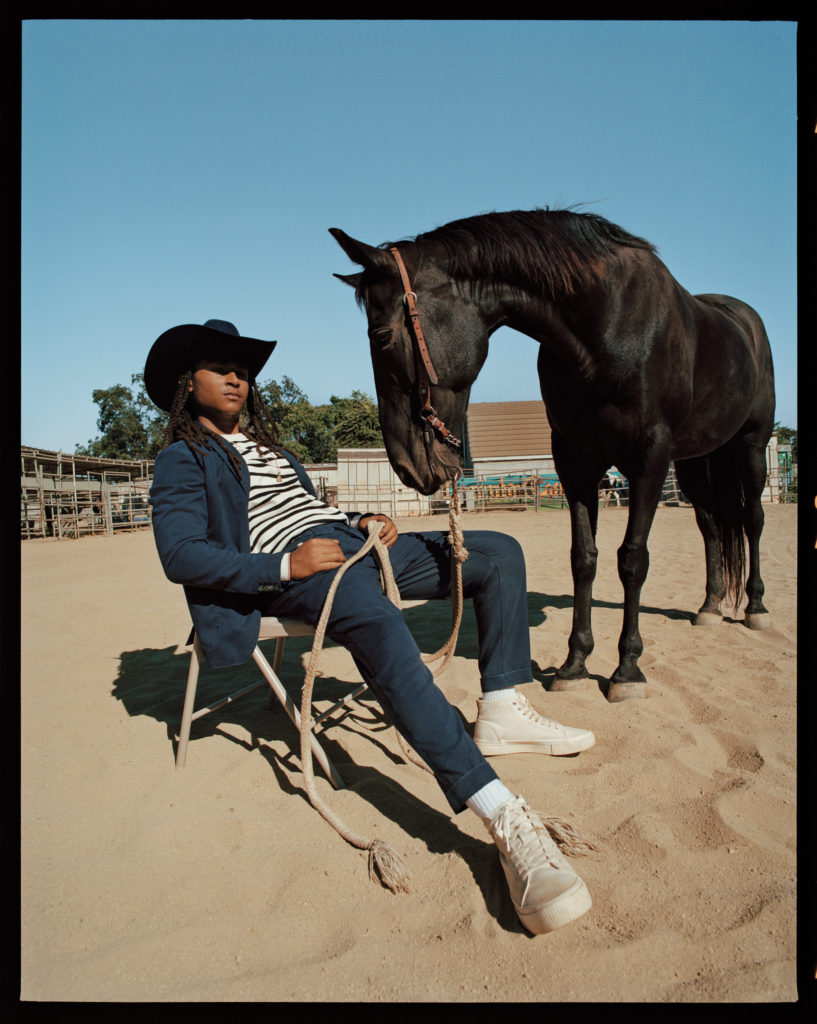
How do The Compton Cowboys plan to expand their legacy?
We plan to expand our legacy by just staying on course with what we are doing. Telling our story, building our business, and giving back to the community is really working for us. Our big mission is to be able to put ranches in underserved communities all over the world. We believe we are on course for that by just continuing our everyday grind of staying active and focused and working hard…and believing in the power of horses to change the world!
Horse-Riding has been largely viewed as a recreational sport for the upper-class in the past. How do The Compton Cowboys make horse-riding accessible to the normal person?
Our ranch in Compton is very local and accessible. We grew up here in what’s called the Richland Farms, which is the original town where Compton was founded and happens to be a deeded agricultural zone. It’s an old west type of town where most residents have horses and other farm animals, and the culture of the community is very robust here. It’s been here for over a century, the thing is hardly anyone knows about it, but we’re all just regular everyday folks living the lifestyle. We are here to lift Richland Farms from obscurity to being world-renowned, and that’s what makes it accessible. We just have to keep letting people know where we are and providing a space for them to come to get the experience for themselves.
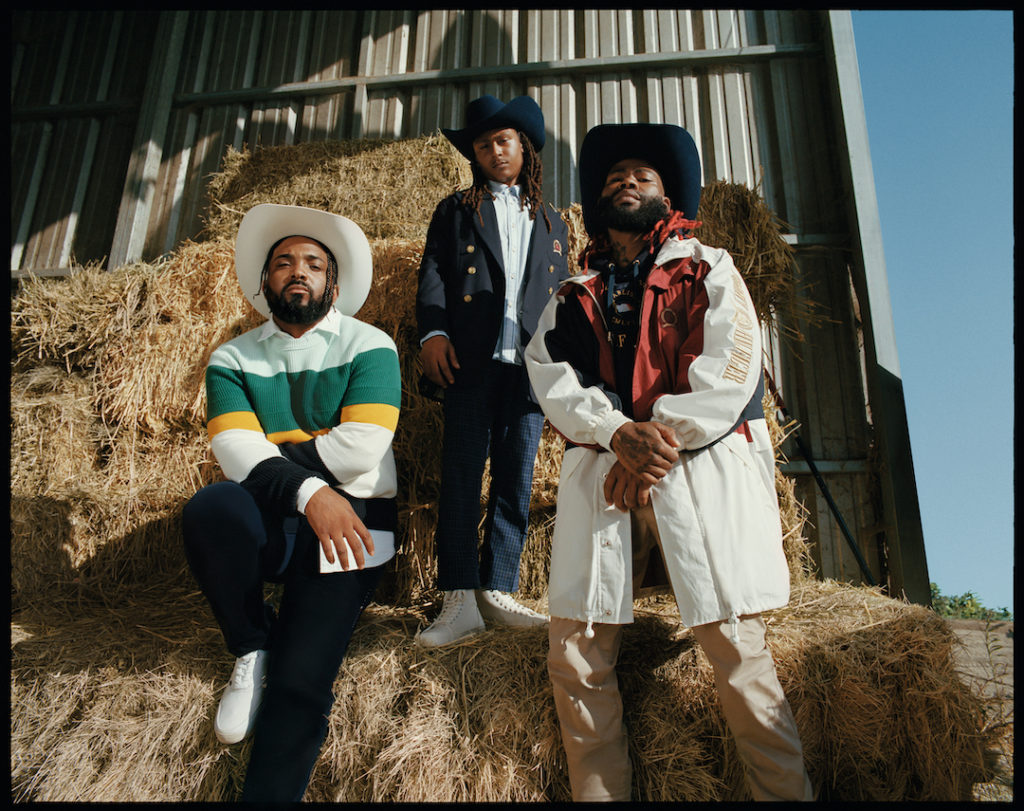
Photography of the journey of The Compton Cowboys has proved to have an significant impact on how Cowboys are viewed now and historically. Why has this form of documentation been so important to you?
It’s important for people to literally SEE things in order to believe in their validity, that’s just human nature I think. A big part of why people hardly know about black cowboys is because the lack of documentation and media. We are directly addressing that issue by emploring photography and film in all of our activities so that we can share these moments with the world and have visual documentation for the historical references. With our movement we are ensuring that the next generation of kids know that black cowboys existed and left a positive impact on the world.
How important is the representation of African-American Cowboys in the States to you?
Representation of African-American Cowboys in the US is of the utmost importance to me and to the black cowboy culture overall. The most prominent images of cowboys in the American west almost exclusively illustrate white men, which disproportionately represents the overall culture and is simply historically false. Cowboys of many racial and ethnic backgrounds have contributed to the history, culture, and traditions of the cowboy lifestyle. Black cowboys certainly have. It is critical for society and especially the youth to know the truth. Black youth need to have images they can look to and have confidence that they too can participate in this lifestyle.
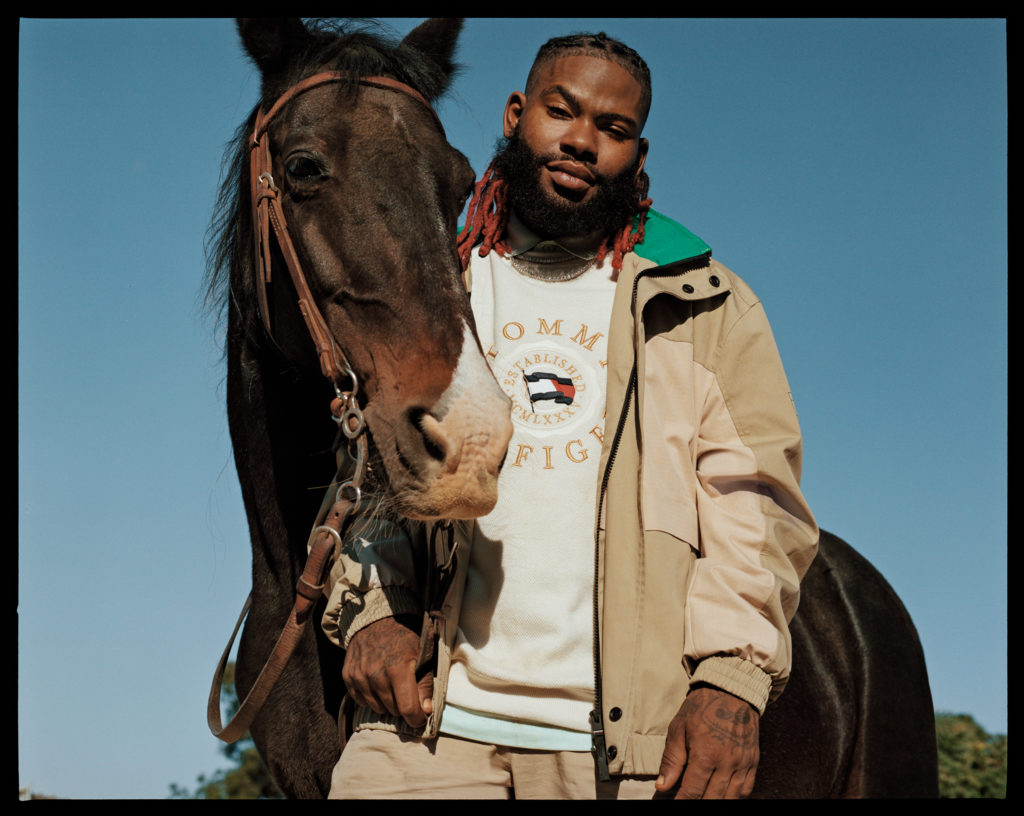
How does collaborating with brands such as Tommy Hilfiger help spread the message behind Compton Cowboys?
Tommy Hilifiger has a vastly wide-reaching platform upon which the messages it promotes have global influence. Collaborating with Tommy to tell our story helps it reach many people in various communities all around the world, and rapidly so. The more people know, the better. It helps with raising awareness and helps bring in the support we need to keep it going.
Tommy Hilfiger has been a huge staple in street style & hip-hop fashion and culture since the 90s. Seen on artists such as Aaliyah and 2Pac. How does a brand like Tommy Hilfiger go hand-in-hand with your message of representation?
It is so significant for the Tommy Hilfiger brand to work with us because it continues the legacy of cross-cultural connections being healthy for social relations. It is vital to the social welfare of our country that our citizens see a range of looks and styles [racially and otherwise] coexisting in harmony and people having fun with it. That helps us embrace the idea that difference is okay and not a threat, which is an ideal that if we all adopted it would lead us to live a better community-oriented lifestyle.
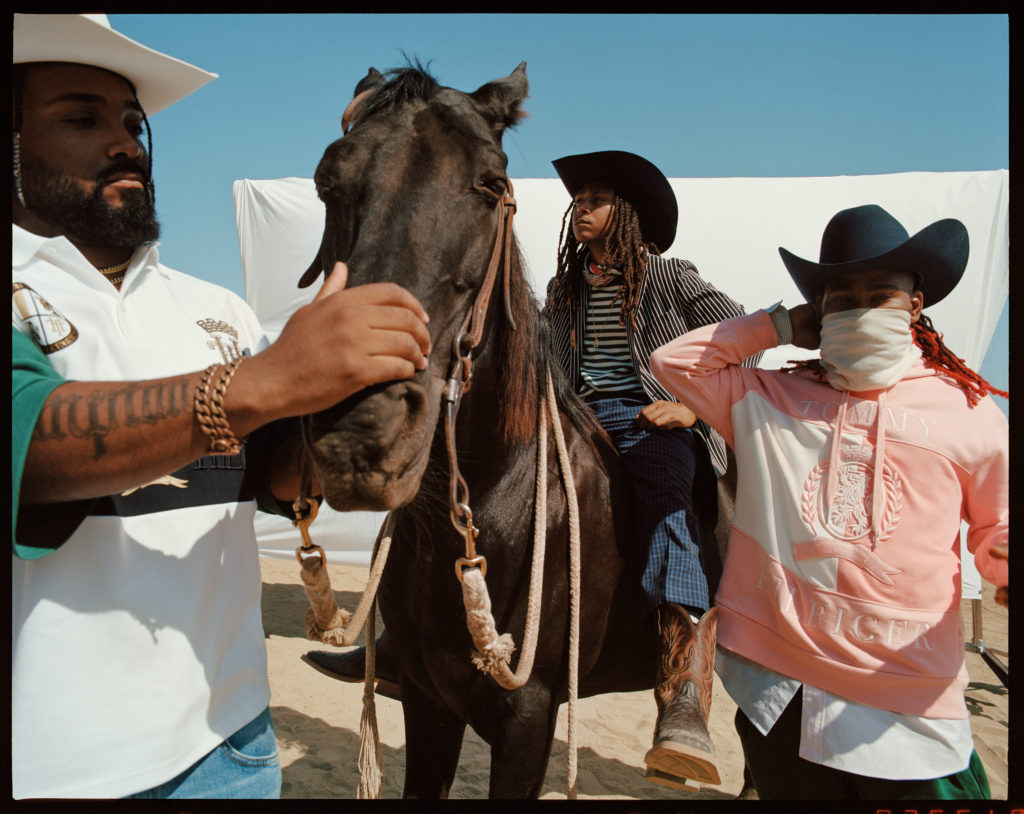
Tell us about the decision to collaborate for the ‘Moving Forward Together’ campaign with Tommy Hilfiger?
The decision is to participate in this campaign was not one we took lightly. We certainly always want to make sure our work represents our mission and reflects our values as a brand and as a group. After careful consideration we determined that this “Moving Forward Together” campaign was spot in this regard, promoting togetherness, diversity, fun, and love. that’s what we all about!
Make sure to check out more about The Compton Boys here.
Check out the GUAP Arts & Culture section, to discover new art, film, and creative individuals.





![ZINO VINCI’S ‘FILTHY & DISGUSTING’EP BRINGS YOU TO THE CORE OF THE ARTIST [@ZinoVinci]](https://guap.co/wp-content/uploads/2023/10/Zino-4.jpg)

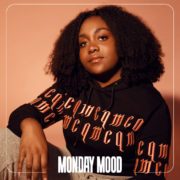



![Remel London’s [@Remel_London] “Mainstream” is a must attend for upcoming presenters!](https://guap.co/wp-content/uploads/2017/02/REMEL-LONDON-FLYER-FINAL-YELLOW-COMPLETE-1.png)